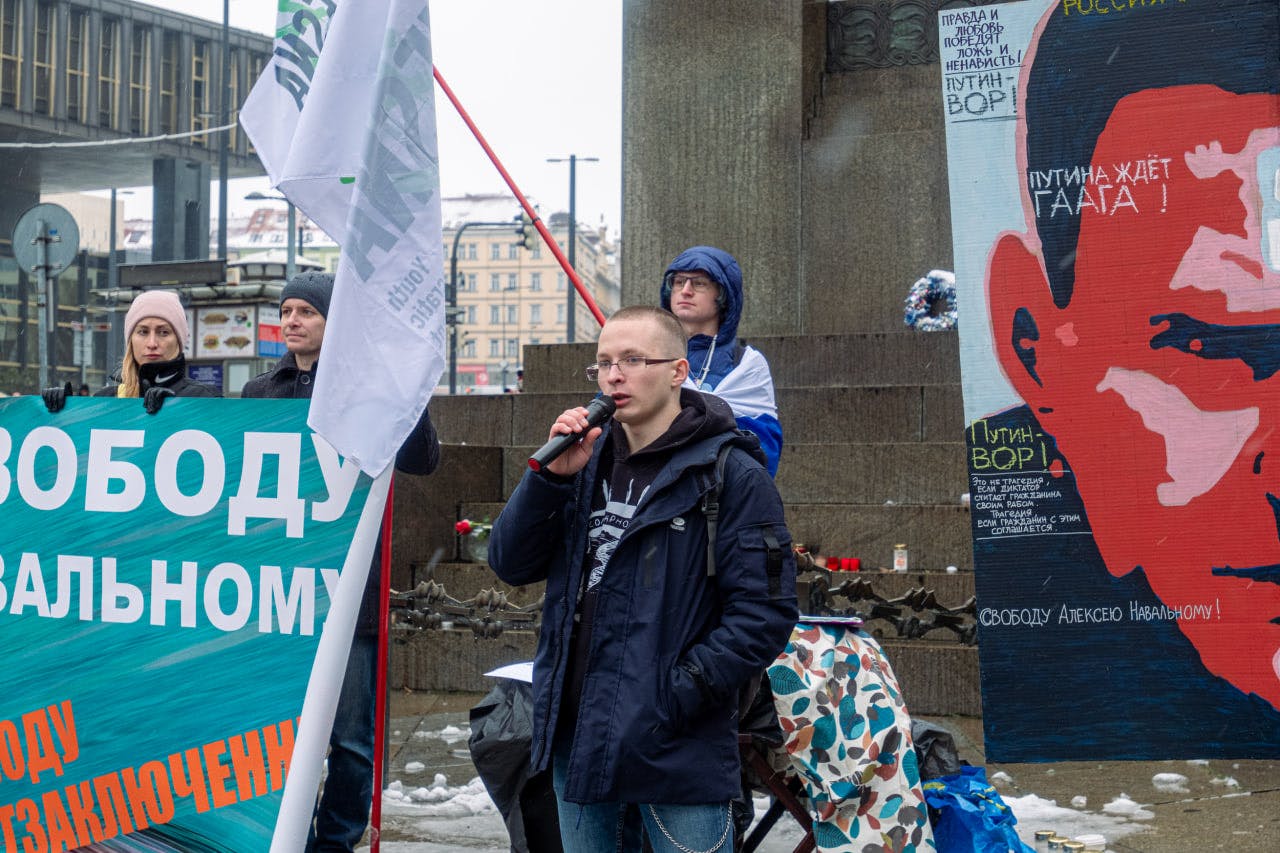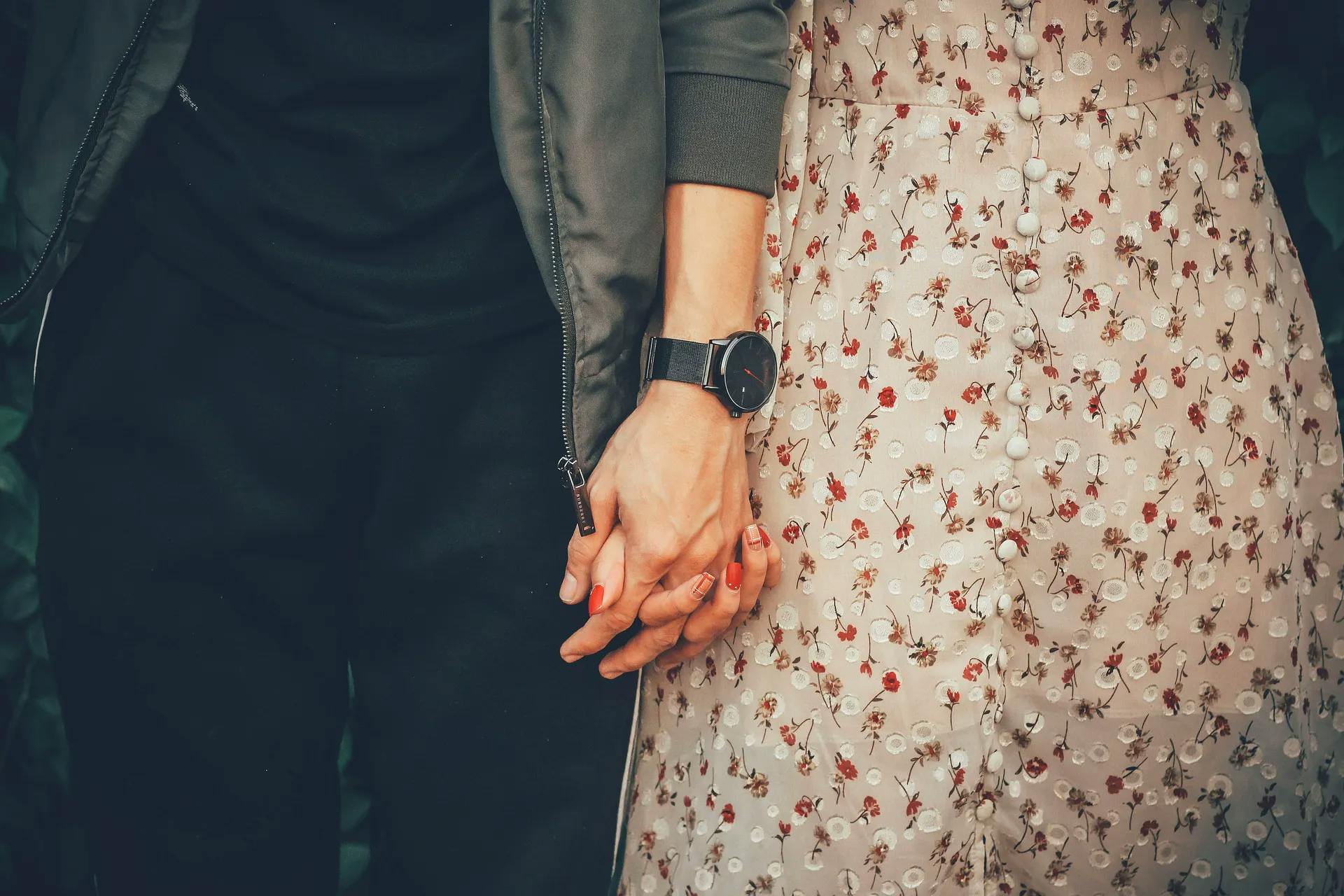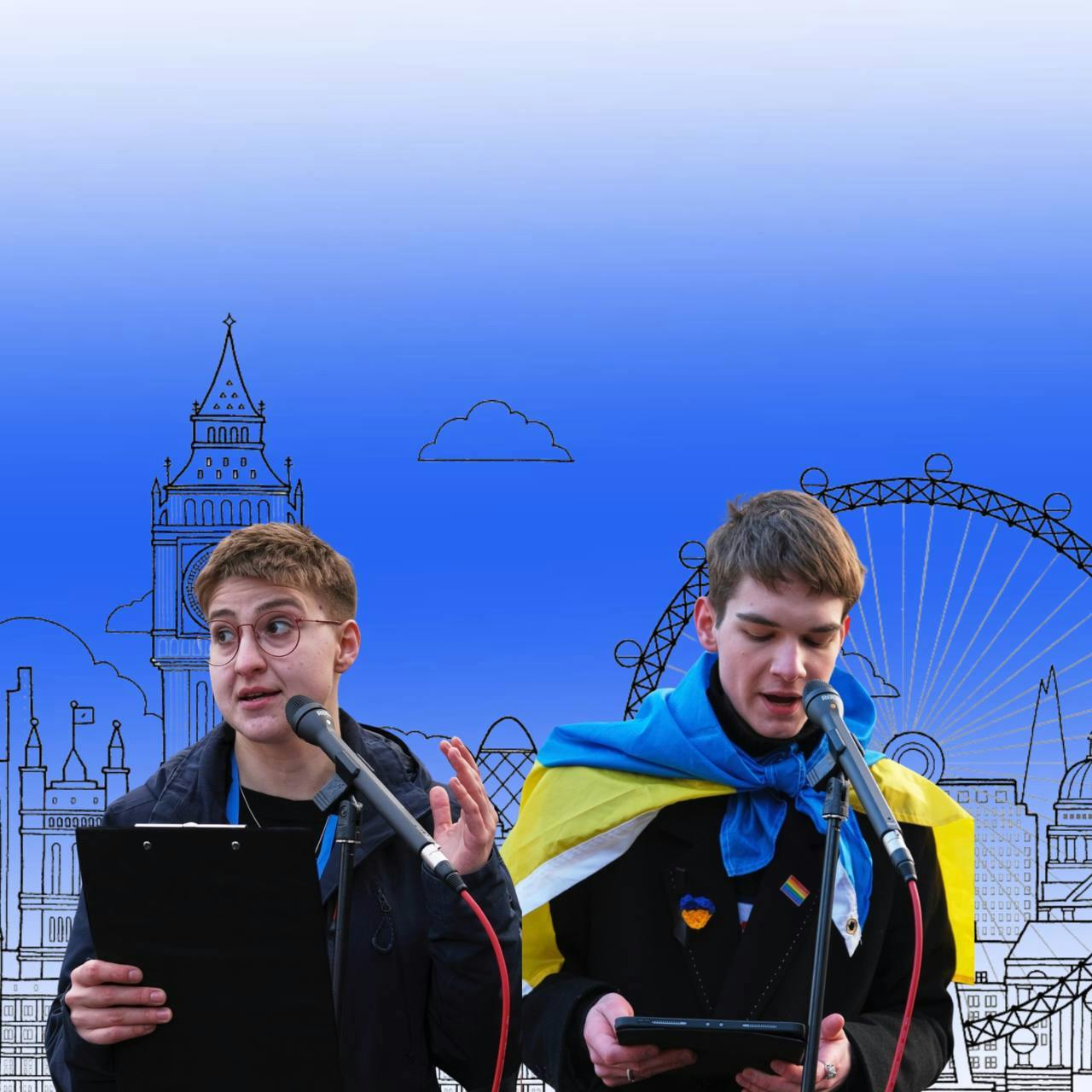Kysh (Andrey)
...do not give up and do not despair, do what you think is the right thing to do. Russia will definitely be free.


Alesya is PhD student in physics at IST Austria, researcher and member of Russians Against War in Vienna
Please tell us about your volunteering experience, what projects and initiatives have you been involved in and what was your part there?
I am involved in the Russians Against War Vienna group: I help organise events (actions, cultural events), manage an Instagram account, and also try to help improve the internal processes in the team.
At the beginning of the war I helped refugees from Ukraine at the Vienna railway station where they were arriving (I translated into English and helped them with information). Before that I also volunteered on the hotline at OVD-info. There was also an educational project about critical thinking skills.
I also do research on supporters and opponents of the war based on social media data (currently it's VK): I analyse their posts and profile information using machine learning and statistical methods. I have published an article in Novaya Gazeta Europa, and there will probably be another one soon. I consider it volunteering as well, because it is not a significant source of income.
Why did you decide to do this research?
I have been thinking in which areas I am objectively better than the others, and how I can apply such skills to get closer to the goals that are important to me—no wars, no authoritarian regimes, democracy.
I am good at working with quantitative data and modelling various processes, and I enjoy it. Generally speaking, this is what I do at work for my PhD in physics.
Why I chose to research the supporters/opponents of the war in VK specifically—because if there is a goal to influence public opinion in Russia (and this is an important goal, as even authoritarian regimes rely on public support), then it requires an understanding how the position of these people who constitute that public opinion is structured.
How did you feel about the results? Did they surprise or disappoint you? Or maybe you were expecting something similar? What was most shocking?
I cannot say I was either disappointed or shocked, but the results were interesting, while some of them were unexpected.
One of the unexpected findings was that the war was actually mainly supported by people who hold dear the values that state sources call “traditional”, e.g., family, children, household, Eastern Orthodox Christianity. This result is of course not very surprising as such, but it is interesting that the effect was so significant to see easily.
Another unexpected thing was that I found no evidence that people who would support the war were more enthusiastic about the USSR than people who wouldn’t. Both of them were interested in this topic equally, and the share of communists and socialists within these groups was even.
Moreover, it would be intuitive that there are some groups majorly read by supporters or by opponents, and they rarely run across each other, according to the idea of information bubbles. However, this was not the case: supporters and opponents of the war follow many common groups with neutral topics. They largely consume pretty similar information about music, sports or even history.
What inspired you to take part in these projects?
The most essential part of my life is making the world a better place. And since the outbreak of war, anti-war activities have been a priority for me. Of course, there are many places where you can be useful, but there is also a personal emotional involvement—before the war started (as I think many people did) I didn't really understand what war was and how it was still possible, but when it started it suddenly became clear to me. At this point I think something needs to be done about a world where authoritarian regimes (which most often start wars) are getting more influential and where military conflict is seen as an acceptable way of solving problems. This is not just a Russian problem, although for me its problems are certainly much closer.
Speaking of the research I do, that seems to be where my skills are most optimally applied, and that was one of the reasons why I decided to do it.
About the anti-war community - for me this is relevant because individuals need a space where they can be surrounded by like-minded people. And that, alone, can increase the number of people who are against the war. Otherwise, if people who are hesitant but rather against the war have nowhere to join, they may not form a strong anti-war stance. Also, the community gives you the opportunity to unite and do useful things such as volunteering, campaigning, etc. more effectively.
Can you tell us what the group Russians Against War Vienna does?
We ensure political activities, help Ukrainian refugees, write letters to the political prisoners, organise cultural (e.g., anti-war films screenings) and educational (e.g., lectures, discussions, masterclasses) events.
As for relatively prominent activities, we held a rally on the day when mobilisation was announced; “The Return of the Names” — an event where we were reading the names of the people repressed in the USSR; a rally to support political prisoners, where we had a huge banner saying, “you may crucify freedom, but the human soul knows no shackles”. It was basically single-handedly devised and made by one of our activists, and it was incredible. And, of course, we held an event about a year of war.
The last event, most emotional for me, was the one on the 9th of May. It was not massive, because we held it in the middle of a workday, unfortunately, it was our only option. We came to the Soviet War Memorial (it has a very diverse crowd around on the 9th of May) with pictures of devastated Ukraine. Various people approached us, including Ukrainians, Russians, and Austrians. The conversations were very emotional, usually, in a good way. An opportunity for a dialogue between very different people and capability to understand each other inspire me.
What do you like in your organisation and what do you think can be improved?
I like that we share similar main values, hence, we generally trust each other: we are against war and repressions, we care for solidarity, and it is important for us not to nourish hatred.
I, personally, would like to organise the work in such a way so that people burn out less and all the members can contribute better and feel their contribution more strongly. I don’t mean that now nobody feels their contribution, of course not. However, there seems to be endless room for improvement. These tasks are actually very hard, and they consume a lot of resources.
What difficulties do you face? How do you overcome them?
We have conflicts, because it is a very emotional activity, everybody works for the cause, and this cause is essential to us. Conflicts are always solved, but sometimes it consumes a lot of resources.
I believe that conflicts are normal in any democratic structure. It is a sign that people have different opinions. Just sometimes the opinion which brings about disagreements, is a very important one. And it is also fine. If everybody had the same idea or was afraid to say they disagree, it would be a very strange democracy.
Another problem is fatigue and burnout. (Read more about it further)
Can you share your most memorable moment?
I would name the event on the 9th of May, the one that I already mentioned. The most memorable part was conversations with Ukrainians. I wouldn’t retell them because I don’t know if they wanted it to be published. However, I can say that there were complex emotions from both sides, but most importantly, there was solidarity, trust, and readiness to hear and understand the other side. This is what gives me the meaning, the understanding that we are doing the right thing.
What is your benefit in volunteering and why do you think it is important?
I do not care especially for volunteering itself. For me, it is about an activity that helps to move the world in the direction I would like it to be, as I see it. It can be either volunteering or not, doesn’t matter. It gives me the feeling that I move the world to the direction I want it to go.
Volunteering takes up a lot of effort and mental resources. How do you deal with emotional burnout? Where do you find the resource to go on?
It’s true, I don’t always have the resources. What I find helpful here is not doing more than you feel you can do now. It is better not to do something or do it not perfectly, than to lose the ability to do anything for a month or two. It is also important regarding others: don’t ask of people more than they can do.
What can you wish and advise to the aspiring volunteers or those who would like to volunteer, but cannot start?
I guess that volunteering just for the sake of volunteering is a poor objective. I did it before, but it gives no satisfaction. If you haven’t started volunteering, but you would like to, I think it is useful to understand what is important for you and why you want to volunteer. So it is better to wonder “What is the most important thing that I want to change/improve?” instead of “How to volunteer?”. The answer to the right question will make it more clear for you where to volunteer and what to do. You shouldn’t be intimidated that you don’t know how to do something, there is a big chance that you will gain the useful skills on the go.
If you are up to some sort of political activism (e.g., anti-war), I think you shouldn’t be afraid of conflicts. They are not a sign that something is wrong with you. It is the activity itself. You should learn how to prevent conflicts and deal with them, but there is a slim chance you can avoid them totally. I heard it from many people from an array of projects that everybody has conflicts.
...do not give up and do not despair, do what you think is the right thing to do. Russia will definitely be free.

...No one could ever imagine that literally tomorrow you would have to turn your life around 180 degrees and leave for a foreign country.

A person needs to know that they are not alone: exploring the work of Russian volunteers in London

Our media platform would not exist without an international team of volunteers. Do you want to become one? Here's the list of currently opened positions:
Is there any other way you would like to contribute? Let us know:
We talk about the current problems of Russia and of its people, standing against the war and for democracy. We strive to make our content as accessible as possible to the European audience.
Do you want to cooperate on content made by the Russian standing against the war?
We want to make people of Russia, who stand for peace and democracy, heard. We publish their stories and interview them in Ask a Russian project.
Are you a person of Russia or know someone who would like to share their story? Please contact us. Your experience will help people understand how Russia works.
We can publish your experience anonymously.
Our project is ran by international volunteers - not a single member of the team is paid in any way. The project, however, has running costs: hosting, domains, subscription to paid online services (such as Midjourney or Fillout.com) and advertising.
Our transparent bank account is 2702660360/2010, registered at Fio Banka (Czech republic). You can either send us money directly, or scan one of the QR codes bellow in your banking app:




Note: The QR codes work only when you scan them directly from your banking app.
Russia started the war against Ukraine. This war is happening from 2014. It has only intensified on February 24th 2022. Milions of Ukrainians are suffering. The perpetrators of this must be brought to justice for their crimes.
Russian regime tries to silence its liberal voices. Russian people against the war exist - and the Russian regime tries its best to silence them. We want to prevent that and make their voices heard.
Connection is crucial. The Russian liberal initiatives are hard to read for European public at times. The legal, social and historical context of Russia is not always clear. We want to share information, build bridges and connect the liberal Russia with The West.
We believe in dialogue, not isolation. The oppositional powers in Russia will not be able to change anything without the support of the democratic world. We also believe that the dialogue should go both ways.
The choice is yours. We understand the anger for the Russian crimes. It is up to you whether you want to listen to the Russian people standing against this.